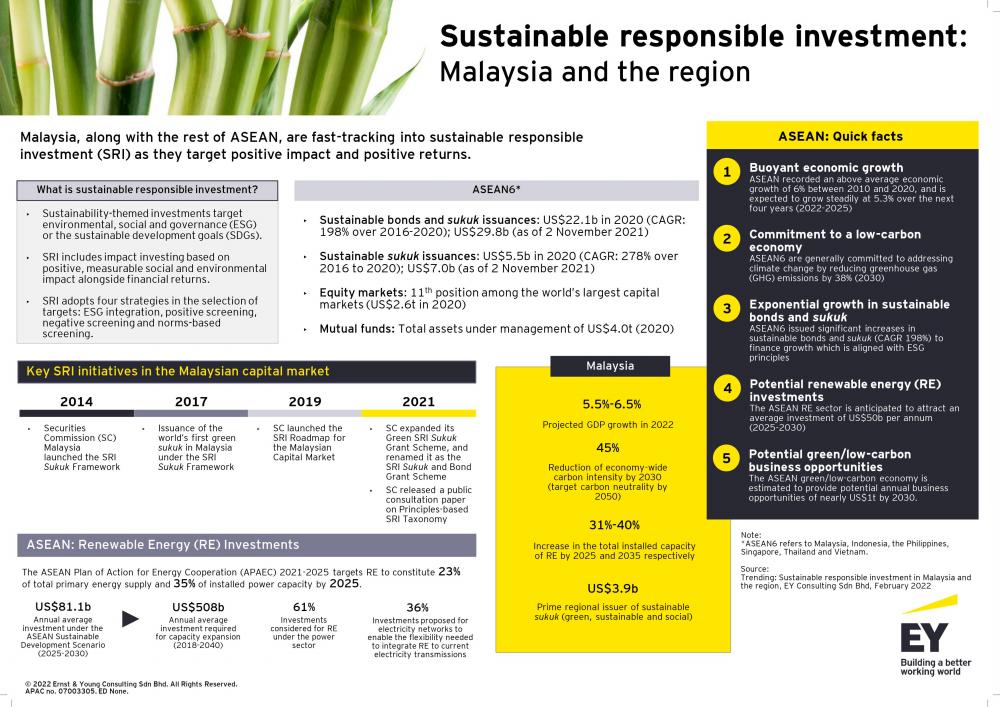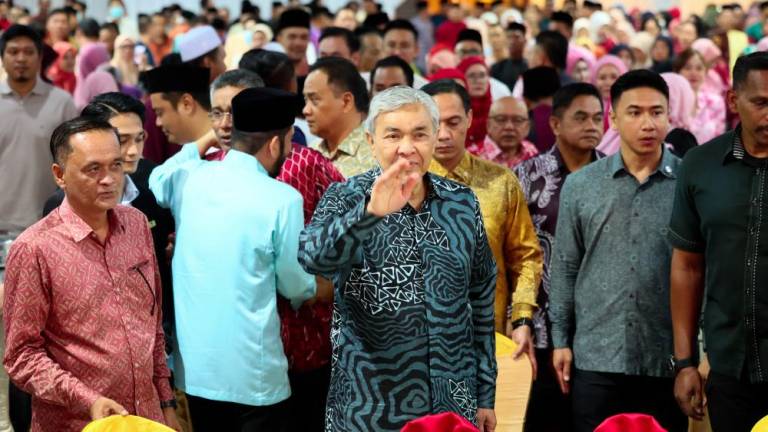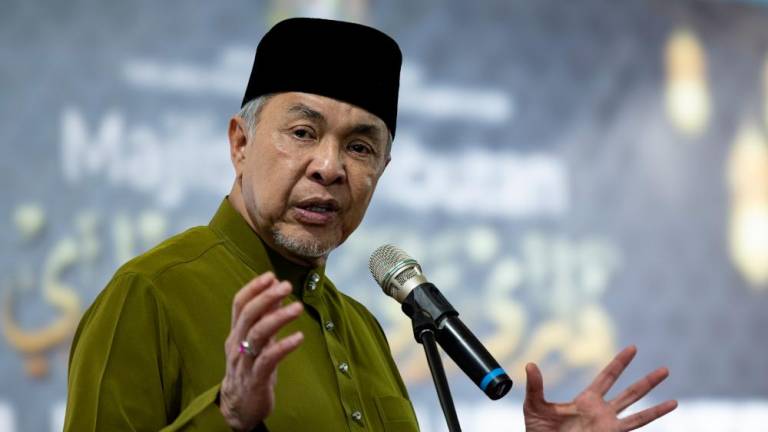PETALING JAYA: Malaysia’s sustainable and responsible investing (SRI) sukuk issuance stood at US$3.9 billion (RM16.32 billion) as of November 2021, placing it at the lead among the Asean-6x countries with 56% of the total issuance.
According to the “Trending: Sustainable Responsible Investment in Malaysia and the Region” report by Ernst & Young Consulting Sdn Bhd and Capital Markets Malaysia (CMM)’s Sustainable Investment Platform (SIP), developments in the SRI arena have catalysed the exponential growth of Asean sustainable bonds and sukuk.
Between 2016 to 2020, the report found Asean-6 consisting of Malaysia, Indonesia, the Philippines, Singapore, Thailand and Vietnam, saw a significant increase at a 198% compound annual growth rate (CAGR) in sustainable bonds and sukuk issuance for financing growth aligned with environmental, social and governance (ESG) principles, with an issuance value estimated to have reached US$29.8 billion as of November 2021.
Correspondingly, it noted that sustainability-themed syariah-compliant sukuk grew exponentially higher at 278% CAGR, and is estimated to have reached US$7 billion in November 2021.
Ernst & Young Plt Malaysia managing partner Datuk Abdul Rauf Rashid has observed Malaysian corporates and organisations, along with their Asean peers, significantly stepping up their adoption of ESG strategies and practices.
“These actions will enhance their resilience and long-term sustainability,” he said in a statement today.
The report also found regulators in the region are developing policies and action plans to achieve the Sustainable Development Agenda by 2030, which includes sustainable agendas/green plans, sustainable investment, power or energy development plans and climate change adaptation or mitigation plans.
Simultaneously, the Asean-6 stock exchanges are progressively adopting SRI and ESG practices, requiring listed companies to submit ESG disclosure information and most of them have launched sustainability-equity indices as a transparent platform for investors to track the performance of companies with good ESG practices.
While the maturity of SRI markets in the respective countries vary, it found the efforts made in ESG policies and formulate action plans are encouraging the development of conducive green-focused ecosystems , with tremendous investment and business opportunities as well as bright prospects for the region’s SRI growth.
The report found 68% of the total Asean-6 bonds and sukuk are focused on investments in three key sectors namely energy (49%), green buildings (10%) and transportation (9%).
By 2030, it estimated the Asean green/low-carbon economy will provide potential annual business opportunities of nearly US$1 trillion.
Meanwhile, the region’s renewable energy sector is anticipated to attract an average investment of US$50 billion per annum from 2025 to 2030.
SIP steering committee chairperson Lya Rahman commented that Asean’s swift growth of sustainable bonds and sukuk, coupled with the growing focus on the green sector, underscores Asean-6’s firm commitment to the fulfilment of the global sustainable agenda by 2030.
“Growth prospects are bright given investors’ increasing demand for sustainability-themed products, particularly with rising concerns on the impact of climate change. Malaysia’s focused efforts in this investment area are poised to maintain its growth trajectory in sustainable sukuk issuance.”













